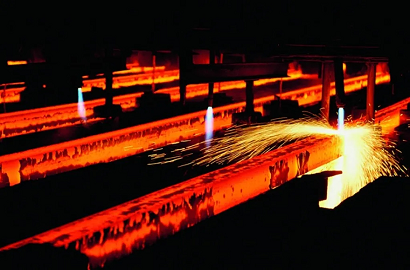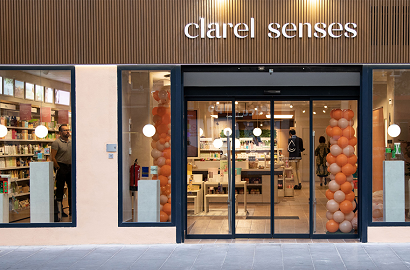Hydnum Steel to manufacture sustainable steel in Puertollano

During the first phase it will invest 600 million euros out of a total of one billion euros and will create 400 direct jobs
Newly-formed company Hydnum steel has chosen Puertollano (Ciudad Real) as the site for its first plant, a European pioneer in sustainable steel production. The first phase will involve an investment of 600 million euros, a figure that may rise to over a billion in total, and the plant will create around 400 direct jobs.
With Helvella Holding as its investment partner and Siemens, Abei Energy and Russula Corporation as technology partners, Hydnum Steel is open to bringing other participants into the project, given its size. It is already in contact with some of these, both financial and technology companies, and also with the Government of Spain, through the Castile-La Mancha regional government, with the aim of taking advantage of the Strategic Project for Economic Recovery and Transformation (PERTE) and the Industrial Decarbonisation grants.
Renewable energy
The new plant will occupy a 1.3 million square metre site. The availability of land was one of the reasons that persuaded the company to choose this location. It also gave weight to the fact that hydrogen production projects are already operating in the area, and that the National Hydrogen Centre is based in the same town. The possibility of entering into research collaborations with this organisation and the suitability of Puertollano for producing renewable energy, such as solar and wind power, also supported this argument.
The strategic location of this town in Ciudad Real sealed the deal. It is close to logistics hubs in the centre, south and east of Spain, as well as Portugal, making it a priority option. A set of advantages in short which, according to the company, make it the ideal ecosystem for setting up the plant. This means that, as well as harnessing synergies from the surroundings, it will also boost the local economy.
Green hydrogen
The plant will be designed to operate using non-fossil fuels throughout the production process. Green hydrogen will be the renewable source gradually incorporated as production increases. This will significantly reduce the plant's carbon dioxide emissions. In fact, the steel industry is responsible for 9% of the world’s carbon emissions and 7% of those in the European Union.
New-generation technology will facilitate the energy transition from fossil fuels to green hydrogen. As well as being highly efficient, the production process will be automated and safe thanks to the application of new technology developments in digitalisation and artificial intelligence. Sustainable development goals (SDG) will also be pursued, focused on incorporating circular economy measures into the steel industry, such as recycling scrap to convert it into raw materials, using only a minimal amount of water and making use of waste and by-products generated during manufacturing.
Digital manufacturing solutions
Siemens will be the technology partner responsible for the digital manufacturing solutions applied when designing, building and maintaining the plant. Based on the digital twin concept, these include design and simulation software, industrial automation systems, control and monitoring systems, cybersecurity, sustainability, artificial intelligence and predictive maintenance. The German company will also implement a decentralised energy system that facilitates the integration of renewable technologies and decarbonisation of the industrial process.
Another of the technology partners, Abei Energy, will bring its experience in green hydrogen production and electricity generation projects based on renewable sources in countries like Spain, the United States, the United Kingdom, France, Italy and Poland. Finally, and just as it has done for decades, the Russula Corporation will supply innovative technology solutions to the world’s main steel manufacturers.
A mining and industrial past
The CEO of Helvella, Eva Maneiro, made reference to Puertollano's mining and industrial past to suggest that, “From now on, it will also be a benchmark for the industry of the future, designed with a conscience and environmental responsibility,” and adding that, “The companies involved will be proud to implement this exciting project”.
The President and CEO of Siemens Spain, Augustín Escobar, explained that the product “will not only have a positive effect on its own facilities in terms of reducing its carbon footprint. It will also have an impact on industries like the automotive and shipping sectors, because using greener steel will help them to meet their decarbonisation targets”.
Photo: Siemens




